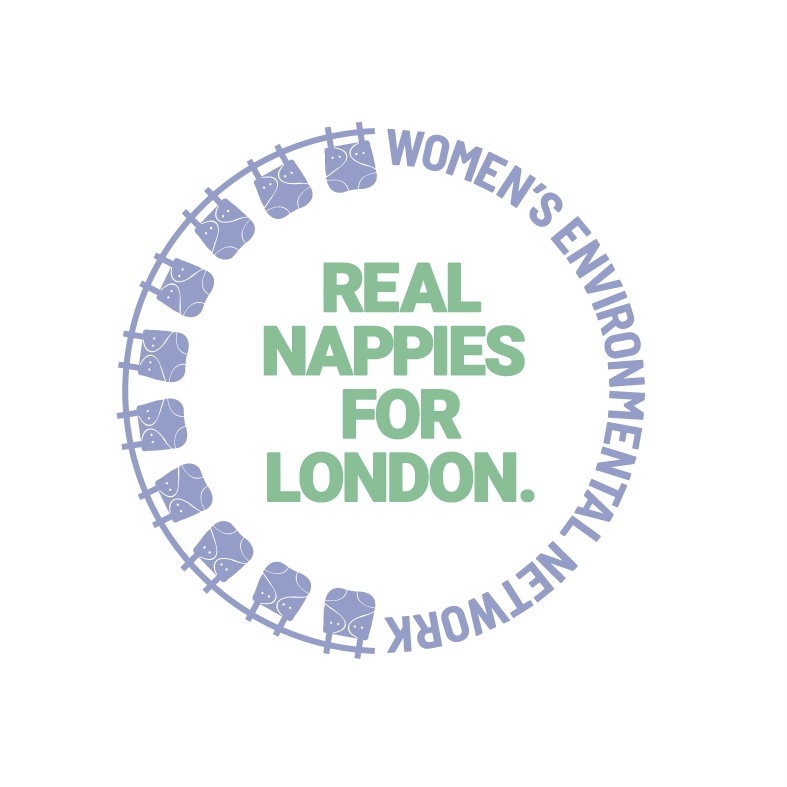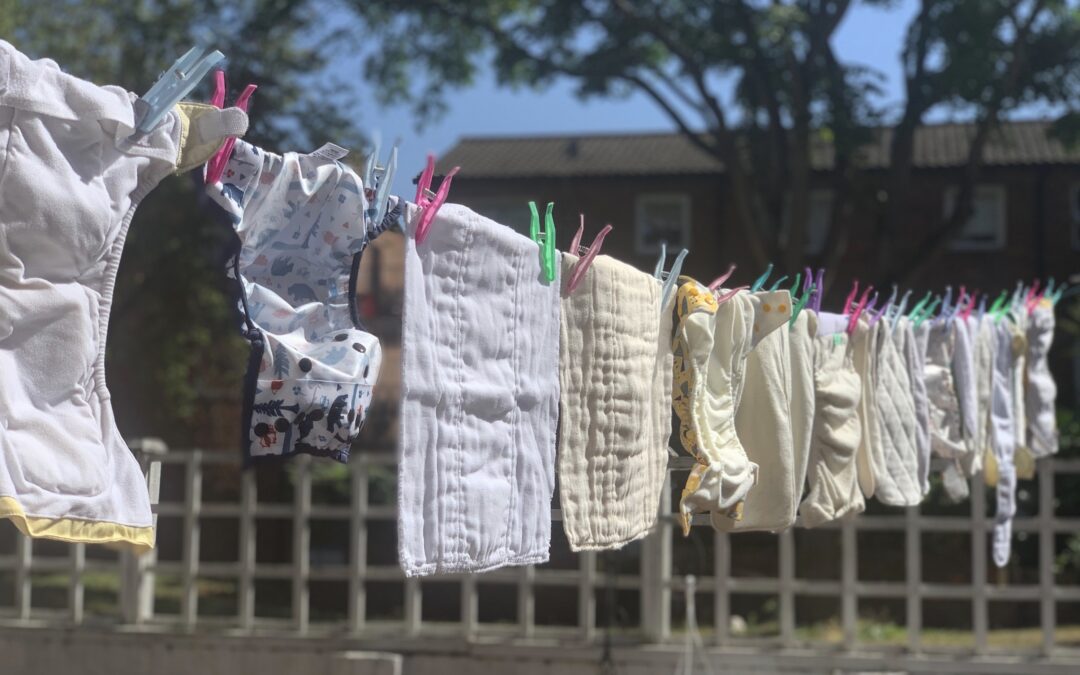It is very easy to deal with reusable nappies that are soiled, if you know how to deal with different types of poo.
As your baby grows, their poo changes. In the first 48 hours, your newborn baby will produce a sticky greenish-black poo known as merconium. After a few days of regulated breastfed or formula-fed milk, the poo will change to a runny mustard/light brown colour. Once they start eating solid foods, their poo becomes more solid.[1] Not all babies are the same, some may poo more or less frequently than others – you will soon be an expert on your little one’s cycle.
Using reusable nappies can be used on newborns, pre-weaned or weaned babies. Pre-weaned poo is water soluble so any dirty nappies can be put straight in the washing machine without pre-soaking in water beforehand. Liners, whether disposable or washable, are useful for protecting the nappies from overstaining or just for catching poo. Disposable liners are not flushable and should be placed in the bin, while washable liners can be washed with dirty, wet or soiled nappies and reused.
For older babies that are weaned, any solid poo can easily be shaken off into the toilet, and this should be done whether you using reusable or disposable nappies. Again, liners can be very useful for catching solid poos.
The design of modern reusable nappies mean they will be cleaned well in the washing machine. A simple routine such as a cold rinse cycle, followed by a temperature wash (60 degrees if your baby is under six months, and 40 degrees if your baby is over six months) is perfect for washing your nappies, with a simple non-bio detergent. Afterwards, nappies can be air-dried away from direct heat. It is always recommended to just double-check with the nappy manufacturers’ product care and washing instructions.
Reusable nappies are fantastic to use in the summer. As we are all aware, many London Boroughs have switched to fortnightly waste collections to increase recycling rates and to reduce the amount of waste sent to incineration. In London, disposable nappies cannot be recycled and need to be disposed of properly in a general waste bin. This may mean that they can get hot and smelly when left outside, so the easy alternative is reusable nappies that are cleaned in the washing machine and line/air-dried at home. Reusable nappies take no time at all to dry, particularly in the summer months, so it’s a great time to make the switch.
_________________________________________________________________________
References:

